 This is the day when we all celebrate the historic achievements of the Labour movement across the country. As Prime Minister, I salute those achievements and the efforts of all those labour leaders, who struggled on behalf of workers, so today Trinidad and Tobago enjoys a unique quality of life, which compares favourably, with many countries in the developed world. My greetings to the Labour movement on Labour Day 2020 are extended on behalf of the Government of Trinidad and Tobago and my own family. As a result of the Novel Corona Virus, the celebrations this year are expected to be more restrained. Nonetheless, the victories of June 19, 1937, achieved on behalf of workers are saluted as a historic point in the march of labour, which began almost 100 years earlier, in the Emancipation of slave labour in 1838. Historical surveys from then, up to1937, indicate that workers over that near one-hundred-year period were, at best, “half-free and half-coerced”, hence their history of fierce opposition and resistance to colonial racism and persecution. They reveal that up to the pre-1937 period the average oil worker was described as living in a social milieu of squalor, hooliganism and prostitution receiving only 91.5 cents a day, while farm workers on cocoa estates, just like sugar workers, who existed in dilapidated dwellings, without basic sanitary facilities, received a mere 40 cents. In that period leaders such as Tubal Uriah “Buzz” Butler, Adrian Cola Rienzi, Elma Francois, the ten women who were arrested for their participation in the June 19 riots -- just to cite a few -- responded vigorously to those issues. Butler, a Grenadian by birth, is remembered as an injured oilfield worker, turned preacher, who passionately articulated the abuses of workers generally, such as their deplorable working conditions, poor remuneration, racial discrimination, and the economic depression of the 1930s. It is only “right and fitting” that today this country should honour Butler, as the late UWI Principal, Professor Lloyd Braithwaite wrote, in a tribute: “…for without his (Butler’s) persistence and fortitude there would have been no June 1937, and the modern trade union and labour movement would not have been born at that time”. Having progressed to Independence, we should acknowledge that, although there were differences and tensions, our post-colonial Governments, in the main, have recognised labour’s role in national development. e.g. the Industrial Stabilisation Act, 1965, introduced the concept of compulsory arbitration and the establishment of the Industrial Court. Since then the Court has been recognised as the legitimate arbiter in industrial disputes between employers and workers. Today, we can proudly describe labour-employer relations in Trinidad and Tobago as respectful and stable. We can attribute this to efforts of the labour movement, private sector and the Government, each one seeking the best outcomes for this country. For instance, the Government, as the largest employer, has maintained and supported its employees, using available technology, which allows thousands to work virtually, during the current pandemic. Significantly, the Government has ensured the jobs and salaries of all public servants, during this stay-at-home. Undoubtedly, it recognises the importance of the nation’s workers as a most important asset in keeping our country economically, socially and politically stable. The face of labour as we have known it is changing, and the sudden, devastating appearance of COVID-19 has certainly brought this realisation to the centre stage. It should be noted that, as a Government, we were forced to make unprecedented decisions to protect everyone in this country. This country owes a debt of gratitude to our frontline workers, who took up their charge, ensuring that the rest of Trinidad and Tobago remained safe and productive. Our health care workers, those in the protective services, sanitation and garbage collectors, the public utilities, the supermarkets – essential workers - reminded us that every job is important and even some that society may ignore are the ones most needed to uphold us as a nation. These workers are exemplars of our national watch words, Discipline, Production and Tolerance. As they worked together, they made us proud to be citizens of this country which so far has successfully fought off destruction by a rampaging virus which is still wreaking havoc across the world. So, today as we celebrate another Labour Day let us never forget the past struggles and the names of those who brought us to this place of stability. Nonetheless, let us prepare ourselves very early for the many coming challenges and transformations in the “new” world, after the Covid-19 pandemic. But let us look towards that future, with boundless faith in our destiny, collectively, in a mutually beneficial relationship, which ultimately will create a stronger Trinidad and Tobago. Towards this end, I wish all our citizens a safe and enjoyable Labour Day!
0 Comments
Out of a total of 33 endangered species recorded in Trinidad and Tobago, over half of them live in the ocean, and many of them are at risk of extinction due to overfishing.
Many out of the list are prized within the commercial fishing industry, including various species of shark and the Nassau grouper, which is the most important of the groupers for commercial fishery in the West Indies. According to the International Union for Conservation of Nature (IUCN), Trinidad and Tobago’s list of critically endangered and endangered species includes the Trinidad White-fronted Capuchin, the Leatherback and Hawksbill Turtles, and many shark species such as the Great Hammerhead, Longfin Mako, Shortfin Mako and Oceanic Whitetip Shark. Several species of coral, which are critical fishery habitats, are also listed as critically endangered due to temperature rise and habitat impacts. Here’s a list of 33 endangered and critically animals in Trinidad and Tobago, according to the IUCN: Trinidad White-fronted Capuchin Hawksbill Turtle Green Turtle Great Hammerhead Smalltooth Sawfish Daggernose Shark Largetooth Sawfish Scalloped Hammerhead Nassau Grouper Oceanic Whitetip Shark Trinidad Piping-guan Trinidad Worm Snake Basking Shark Longfin Mako Golden Tilefish Bentfin Devilray Sicklefin Devilray Giant Devilray Longfin Mako Shortfin Mako Atlantic Bluefin Tuna American Eel Staghorn coral (Acropora cervicornis) Mountainous star coral (Orbicella faveolata) Boulder star coral (Orbicella annularis) Elkhorn coral (Acropora palmate) Staghorn coral ((Acropora cervicornis) Red Siskin Black-capped Petrel Eskimo Curlew (migratory) Golden Tree Frog (Phytotriades auratus) Adult tree frog (Flectonotus fitzgeraldi) Robber frog (Pristimantis urichi) No laws protecting sharks, endangered fish species Marine scientist Shivonne Peters said more protections should be put in place for endangered marine species, including those within the protected Buccoo Reef Marine Park. She said there is a dire need for local legislation to protect critical marine species such as sharks and queen conch. She added that within the protected Buccoo Reef Marine Park poaching of conch, parrotfish and sharks occurs in the protected area. “There should be more protection, and within the Buccoo Marine Park, the only marine protected area, there needs to be active enforcement, and maybe a change to existing legislation, because the penalties are very minimal…the legislation was enacted decades ago and has not changed since,” she said. Peters, who was the park manager for seven years and left in 2018, said many environmental organisations have been clamouring for more protections for marine species. Additionally, she said no consistent scientific monitoring is done to determine species density and reef health. Peters is currently pursuing a PhD on these issues with an aim to improving the data available on these topics. According to a 2019 United Nations report, approximately 1 million plant and animal species are at risk of extinction within the next few decades. For the full list of endangered and vulnerable species worldwide, see the IUCN's Red List here: https://www.iucnredlist.org/ Source: The Loop, March 3, 2020 The University of the West Indies (UWI), St Augustine, has appointed the first female Professor of Science, Professor Judith Gobin.
According to a statement from NIHERST, Professor Gobin is also Head of the Department of Life Sciences, the largest Department in the Faculty of Science and Technology. “For the first time in the history of the St. Augustine Campus of The University of the West Indies and the Faculty of Science - we have a female Professor of Science.” NIHERST commemorated the development, which coincides with World Ocean Day 2020, celebrated on June 8 every year. “On World Ocean’s Day 2020, celebrated on June 8 every year, NIHERST finds it only fitting that we pay a very special tribute to Professor Gobin, our very own local and pioneering scientist in Marine Biology.” NIHERST said Professor Gobin’s marine research career spans more than 38 years and she has made significant academic contributions to the knowledge of Marine Biodiversity in Trinidad and Tobago and the Caribbean. She has published on a number of “new marine scientific records” and “new marine species” (approximately 298) - for Trinidad and Tobago and the Caribbean. Her research concentrations began in soft coastal marine sediments followed by rocky shores and more recently deep-sea areas. In this respect, she successfully launched with NIHERST a book and a 5-part DVD in 2018. The state agency said Professor Gobin is the first and only Caribbean and UWI marine scientist to:
NIHERST said some of her international research partners include the IUCN, the Royal Society of the UK, EV Nautilus and the Ocean Environmental Trust (OET), the Deep Ocean Stewardship Initiative (DOSI) and the South American Coastal Research group (SARCE). NIHSERT said Professor Gobin is globally recognized as a key SIDs (small island developing states) marine science expert and has been doing invited (international) talks on these topics since 2016. Professor Gobin’s message is to all, but especially to girls and young women who remain less likely to pursue education and careers in science, technology, engineering and math (STEM): “In Trinidad and Tobago, we have been making strides in marine and environmental scientific research; for example-here at the University of the West Indies (Faculty of Science and Technology), NIHERST, UTT and IMA with support from the Ministry of Planning and Development (responsibility for the Environment) as well as companies such as SHELL and BPTT.” “However, there is still much more to be done and I wish to make a personal appeal to all- the Government, Industry and the Private sector of Trinidad and Tobago- please channel more funds and resources into scientific research and STEM- it is where our future lies.” I come here when I have a little time, sometimes late in the evening or very early in the morning. I do a lot of focussed thinking when I am tilling the soil and while I am planting.
Since coming into office I've created and kept a kitchen garden at the Prime Minister's official residence in St. Anns. rinidad and Tobago once again becomes centre stage for one of the world’s oldest creatures, the Leatherback turtle, as they return to our shores to nest. Turtle conservation group Nature Seekers recently shared photos of a female Leatherback turtle which came ashore to Matura Beach to lay her eggs. T&T is known as one of the largest leatherback nesting sites in the world, and the country’s conservation efforts for the endangered creature has been shown on international news agencies such as National Geographic and Blue Planet. Turtle watching season begins in Trinidad and Tobago from March 1 to August 30 and a permit is required for viewing these endangered animals, which were designated as Environmentally Sensitive Species (ESS) and are protected by law. Sightseers are warned that the turtle nesting sites on Matura and Fishing Pond beaches, and part of the Grande Riviere beach, are prohibited areas during turtle nesting season (March 1-August 30) under the Forests Act. It is also illegal to disturb turtle nesting grounds or affect the environment in any way which would harm turtle habitats. The Leatherback turtle, Loggerhead turtle, Hawksbill turtle and Olive Ridley turtle are all designated as Environmentally Sensitive Species. To see Leatherback turtles, one can apply for a permit via the Forestry Division or contact turtle conservation group Nature Seekers. Leatherback turtle numbers dropping due to bycatch Regulations under the Fisheries Act mandate that each commercial shrimp trawling vessel should have a Turtle Excluder Device as well as the specifications for the device, to ensure that turtles can escape if caught in nets. However Nature Seekers chairman Kyle Mitchell said in a 2018 interview with Loop News that the number of turtles nesting on Trinidad and Tobago’s shores was dropping, and the probable cause was bycatch. Turtles often get caught in fishing nets while coming ashore to nest, getting trapped below the water where they suffocate and die. TEDs are to be installed to allow turtles to escape the nets, if caught. Poachers caught with Leatherback turtles or anyone ill-treating a Leatherback turtle faces two years jail time and a fine of up to $100,000, under the Conservation of Wildlife Act About Leatherback turtles
Leatherbacks are the largest of all living turtles and have been in existence for approximately 100 million years. They can weigh up to 2000lbs and 10feet in length, but more commonly average 5-7 feet and 1000 lbs. They are found in all the world’s oceans. Leatherbacks come from as far as Africa, Canada and the UK to nest on local beaches. The most important nesting sites in Trinidad are Matura Bay, Fishing Pond, and Grande Riviere and Turtle Beach in Tobago. Their greatest threat worldwide is the commercial fishing industry, especially the practices of long lining and drift netting. IMANI BISHOP, 14, of St Joseph Convent, Port of Spain, has been congratulated by the National League for Nursing (NLN) based in Washington DC, for her recent study of how the covid19 pandemic has brought about a new respect for front-line health workers such as nurses.
Her online survey has been posted on the league's website at its Coronavirus Resource Centre. NLN chief program officer Janice G. Brewington, PhD, in an e-mail to the pupil's parents Richard and Wendy Bishop, said, "We applaud Imani for her or her excellent work." Founded in 1893 as the American Society of Superintendents of Training Schools for Nurses, the NLN was the first nursing organization in the United States. Bishop's findings indicate a leap in interest in front-line health workers over the period of the pandemic. Some 80 people were polled, of whom 35 replied. They were asked, "Did you gain an interest in front-line workers due to the work they performed during the fight against the coronavirus disease?" Some 51 per cent of respondents said they had an interest before the pandemic, while 49 per cent did not. However, some 94 per cent of respondents said that during the pandemic they gained an interest in the work of front-line workers, with just six per cent saying no. Bishop called for TT to have a national day of recognition for nurses. She said she initially had no interest in the work of these workers, but had changed her mind of seeing their heroic efforts worldwide. "Their selflessness would be kept extremely close to my heart, forever. "For this altruistic act, I am proposing that, we, as nations, set a day, before the end of this year, to recognise these courageous workers, citizens, as we wait for a vaccine to be developed." She hoped it would be celebrated every year. "Continuously fighting this uphill battle against the invisible enemy, the coronavirus disease, which seems unbeatable for now, are these caring, dedicated front-line workers. "I hope that the entire nation agrees with this view and a motion is passed to have a day of recognition for these selfless citizens." Bishop also represented TT at the Carifta Triathlon in 2017, 2018 and 2019. Source: Newsday, May 18, 2020 Plans to reopen the Trinidadian economy could soon be put into full swing as the twin-island Caribbean country reports 108 recoveries and zero active cases of COVID-19. (Photo: GoTrinidadandTobago.com) Twin-island republic of Trinidad and Tobago, with its last recovery, is now among eight Caribbean countries that have brought active cases of the novel coronavirus (COVID-19) to zero.
As at 1:52 pm Greenwich Meridian Time (GMT) on Friday, May 22, some 21,630 cases have been confirmed across the region. Of that number, 10,372 patients have recovered and been released, while 793 persons have died. The other seven members of the Caribbean’s elite ‘coronavirus-free’ club are St Kitts, Dominica, Monserrat, Anguilla, Belize, St Lucia, and Saint-Barthélemy. See the latest situational analysis on COVID-19 in the Caribbean below:Dominican Republic: 254 new cases; 13,657 confirmed. 448 patients have died. (7,366 patients have recovered) Puerto Rico: 117 new cases; 3,030 confirmed. 126 patients have died. (*No information available on recoveries) Cuba: Eight new cases; 1,916 confirmed. 81 patients have died. (1,631 recoveries) Haiti: 71 new cases; 734 confirmed. 25 patients have died. (21 recoveries) Jamaica: Five new cases; 535 confirmed. Nine patients have died. (181 recoveries) French Guiana: 12 new cases; 249 confirmed. One patient has died. (137 recoveries) Martinique: No new cases; 192 confirmed. 14 patients have died. (91 recoveries) Guadeloupe: No new cases; 155 confirmed. 13 patients have died. (109 recoveries) Guyana: Two new cases; 127 confirmed. 10 patients have died. (57 recoveries) Bermuda: No new cases; 125 confirmed. Nine patients have died. (80 recoveries) Cayman Islands: Ten new cases; 121 confirmed. One patient has died. (55 recoveries) Aruba: No new cases; 101 confirmed. Three patients have died. (95 recoveries) The Bahamas: One new case; 97 confirmed. 11 patients have died. (44 recoveries) Barbados: No new cases; 90 confirmed. Seven patients have died. (70 recoveries) Sint Maarten: No new cases; 77 confirmed. 15 patients have died. (59 recoveries) US Virgin Islands: No new cases; 69 confirmed. Six patients have died. (61 recoveries) St Martin: No new cases; 40 confirmed. Three patients have died. (33 recoveries) Antigua and Barbuda: No new cases; 25 confirmed. Three patients have died. (19 recoveries) Grenada: No new cases; 22 confirmed. (17 recoveries) St Vincent and the Grenadines: One new case; 18 confirmed. (14 recoveries) Curaçao: No new cases; 16 confirmed. One patient has died. (14 recoveries) Turks & Caicos Islands: No new cases; 12 confirmed. One patient has died. (10 recoveries) Suriname: No new cases; 11 confirmed. One patient has died. (Nine recoveries) British Virgin Islands: No new cases; eight confirmed. One patient has died. (Six recoveries) Countries without active casesTrinidad and Tobago: No active cases; COVID-19 free. (Previously had 116 confirmed cases, eight patients died) St Kitts and Nevis: No active cases; COVID-19 free. (Previously had 15 confirmed cases) Dominica: No active cases; COVID-19 free. (Previously had 16 confirmed cases) Monserrat: No active cases; COVID-19 free. (Previously has 11 confirmed cases, one patient died) St Lucia: No active cases; COVID-19 free. (Previously had 18 confirmed cases) Belize: No active cases; COVID-19 free. (Previously had 18 confirmed cases, two patients died) Saint-Barthélemy: No active cases; COVID-19 free. (Previously had six confirmed cases) Anguilla: No active cases; COVID-19 free. (Previously had three confirmed cases) Source: Buzz Caribbean, May 2020 The University of the West Indies (UWI) will take part in a study designed by the World Health Organisation (WHO) in an effort to find methods to properly treat COVID-19.
All the university’s regional campuses, including Trinidad and Tobago, will be taking part. Speaking on the study at the Ministry of Health’s daily virtual health briefing, Professor Terrence Seemungal, Dean of the UWI Faculty of Medicine, explained that it’s set to be a comparative analysis of four drug treatments, including hydrochloroquine, and standard patient care. Standard care refers to the treatment of singular symptoms or the prescription of anti-biotics based on the patient’s individual needs. “Patients will be given the opportunity of enrolling in the study; of course, and they can say no and if they say yes, they will have to sign a consent form and further information will be given to them,” he said. The study calls for the enrollment of people who are already infected with COVID-19 to participate, but they will be relinquishing some measure of control. “If someone opts to go into the study, they cannot say which line of treatment they must get; it is, what we call, randomised and the randomisation process is done by the WHO,” he explained. Professor Seemungal says the intention is for scientists to be able to conclusively determine which of the drugs, if any at all, could be effective in treating COVID-19. Timelines for the study will range between seven to 14 days depending on which treatment the subject is given. The University’s ethics committee will have the last say on whether UWI does end up officially participating in the study. Source: The Loop 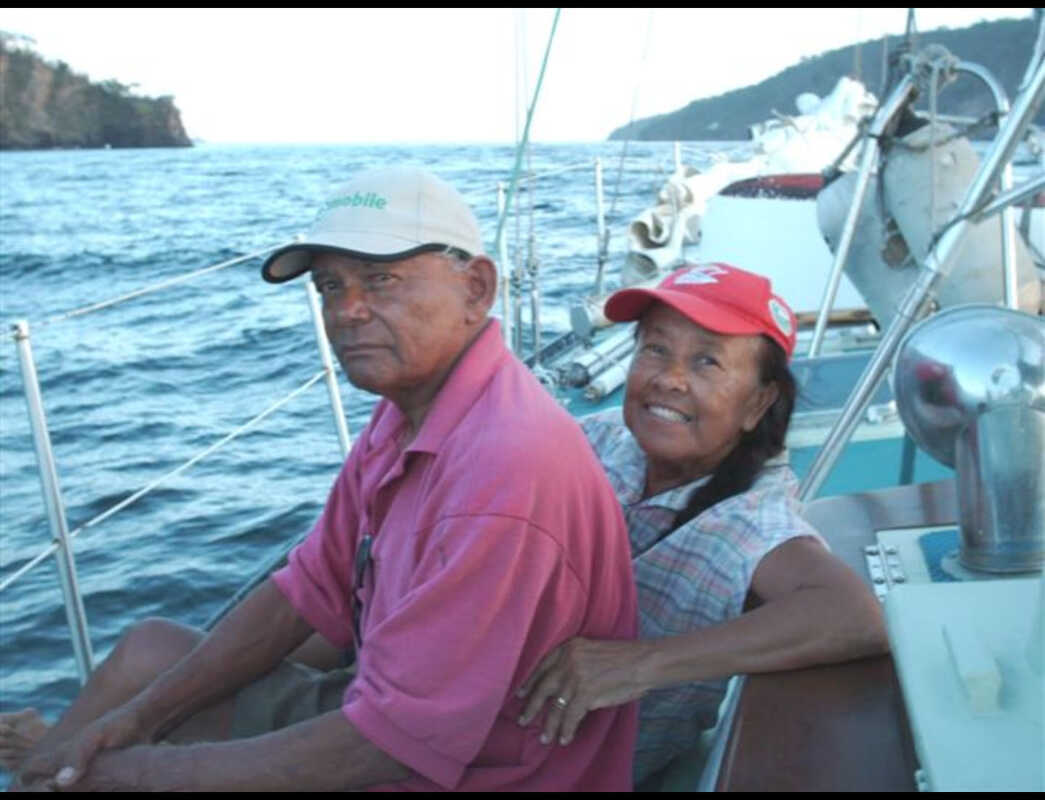 Harold La Borde was a Trinidadian sailor and adventurer[1] who from 1969 to 1973 circumnavigated the world in his 40-ft ketch Hummingbird II. He was accompanied by his wife, Kwailan, and his five-year-old son Pierre. As the first known Trinidadian sailors to cross the Atlantic and later to circumnavigate, Harold and Kwailan were awarded the nation's highest honour – the Gold Trinity Cross. Harold was born in Trinidad, West Indies, on June 18th 1933 (died June 2016), of parents with a rich mixture of blood in their veins – French, African, Spanish and Amerindian (Carib). He was educated at a local Roman Catholic school and began his sailing career by building dinghies, in which he taught himself the rudiments of seamanship, and reading any book about deep-sea sailing that he could lay his hands on. Harold La Borde was determined to get a suitable boat, opting to build one himself. In his first book, An Ocean to Ourselves (1962), La Borde tells how he built a 26-foot ketch Humming Bird. Harold and Kwailan, who were married in 1959, made their maiden voyage in the 26-foot vessel, Humming Bird, to England in 1960, together with a friend, Buck Wong Chong. The Humming Bird was subsequently sold, and says Harold "is somewhere in Europe." The La Bordes, always working as a team, took jobs at an Outward Bound school in Nigeria in 1961, after the voyage, but the call of the sea was too strong for the young couple and they returned to Trinidad in 1963, when they started to build the 40-foot ketch Humming Bird II. Their first-born son, Pierre, arrived while work was in progress. The boat was completed in three years and, after chartering her out to Americans for a further three years in order to raise sufficient funds, the family set out on 2 February 1969[2] on the, now historic, voyage that took them around the world. Harold and Kwailan were both awarded their nation's highest award, the Trinity Cross for their seafaring adventure. Their second son, Andre, was born in Auckland, New Zealand, during the voyage. Upon their return home, the 40-foot Humming Bird II was purchased by the Trinidad and Tobago Government in 1973, and can be seen in the museum near the lighthouse on South Quay; and according to Harold "is rotting away there. It is a sad thing, especially when you talk about taking care of historical things." The La Bordes went on to another circumnavigation voyage via Cape Horn (1984–86) in the Humming Bird III. Harold La Borde T.C. also wrote a further two books with input from his family, wife Kwailan and sons Pierre and André, All Oceans Blue (1977), and Lonely Oceans South (1987). Documentary films of their travels were made in conjunction with the Government Film Unit, which were also very professionally put together. After retiring from their respective jobs in Trinidad, the La Bordes ran a small family marina in Trinidad's busiest yachting bay. Harold's full-time job was working on the Humming Bird III, every day while Kwailan finished their autobiography which includes all of their sailing voyages to the present, entitled Wind, Sea, and Faith. Harold La Borde died on June 12, 2016, leaving behind his wife, sons Pierre and Andre, three grandchildren (Shannon, Arama, and Sanchia), and his brothers Rudy and Hugh. Source: Virtual Museum of TT, May 1, 2020 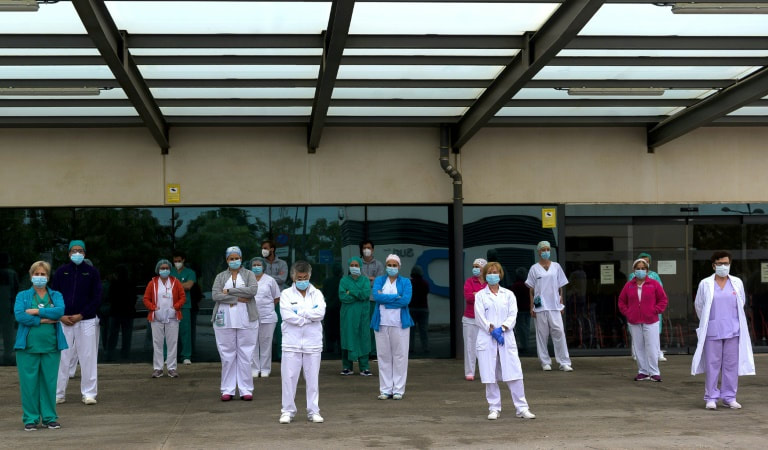 A team of Cuban nurses arrived in Trinidad and Tobago on Friday to assist this country with its COVID-19 efforts. Health Minister Terrence Deyalsingh made the announcement while speaking at the daily virtual media briefing on Saturday. He said the nurses will be quarantined for a 14-day period before they are deployed. "The Cuban team of nurses of 11 or 12 did in fact arrive yesterday (Friday). We are happy to welcome them to Trinidad and Tobago. As per protocol, they are going to be quarantined for a period of two weeks just to make sure, just like we did with the contingent from Barbados and Suriname," Deyalsingh said. The Health Minister added that they are Intensive Care Unit (ICU) nurses. He noted that there is a shortage of that skill in T&T and local nurses are being trained. "Once they get the all clear, then we will have them deployed where we need them. These nurses are specialist ICU nurses. In Trinidad and Tobago, we have a shortage of that skill. They are not taking the job of Trinidad nurses. What we are doing in the interim is also training our local nurses in ICU management." Meanwhile, the Ministry of Health said in its 4 pm clinical update on May 2, 2020, confirmed that the number of positive cases remains at 116, with eight deaths. To date, 1,838 samples have been submitted for testing, with 1,517 unique patient tests completed and 312 repeated tests. The Ministry said 88 people have been discharged to date, with one additional person discharged from the Home of Football in Couva. Currently, six patients are still at the Couva Hospital and there are no patients at Caura Hospital. The Ministry said there are no patients in ICU or HDU. Source: The Loop, May 3, 2020 |
T&T news blogThe intent of this blog is to bring some news from home and other fun items. If you enjoy what you read, please leave us a comment.. Archives
May 2025
Categories
All
|
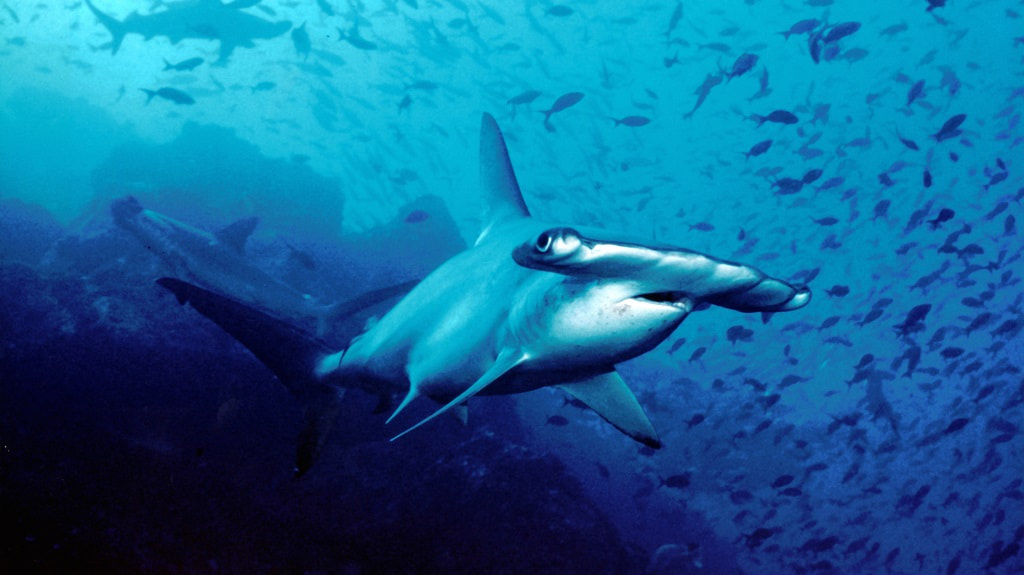
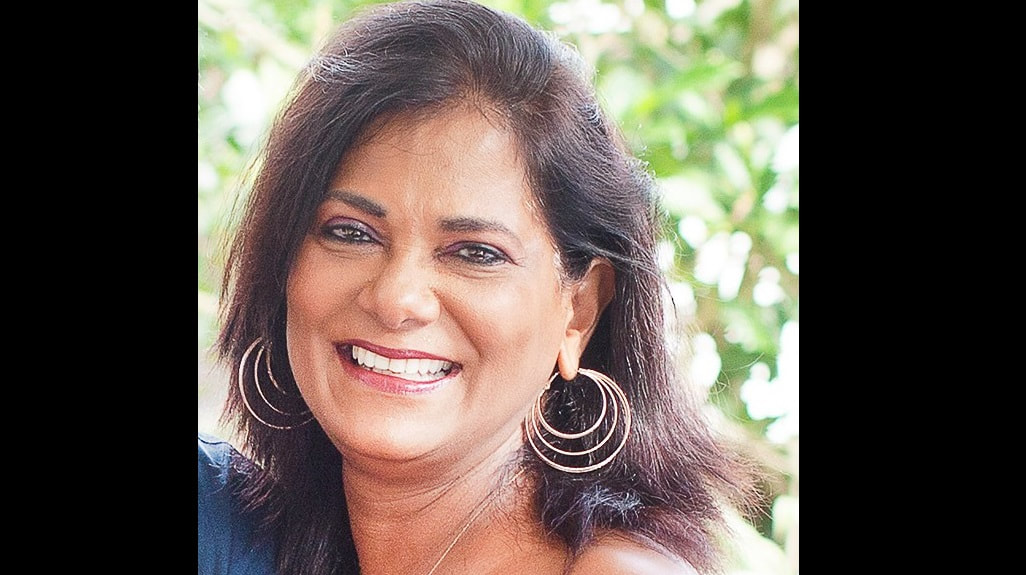
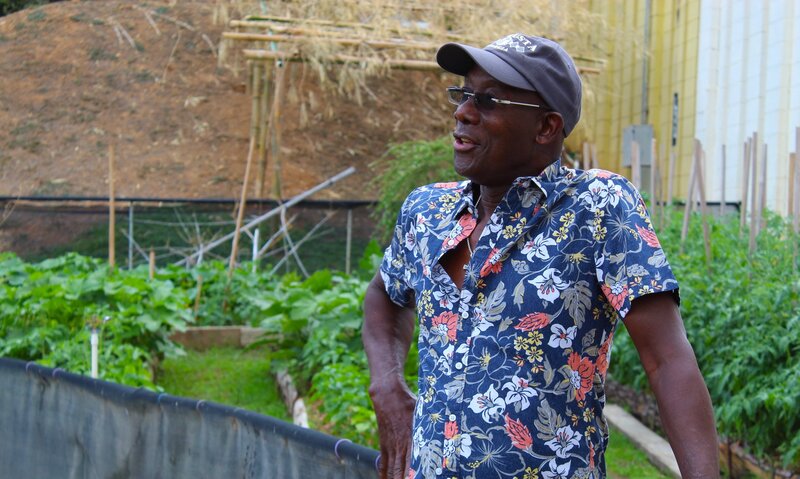
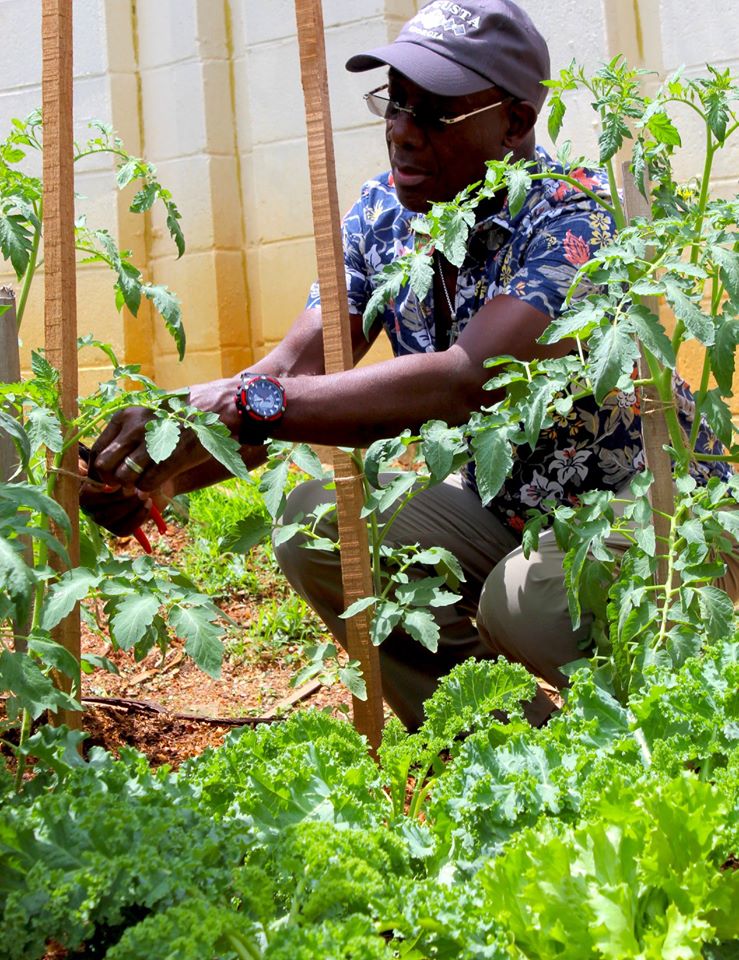
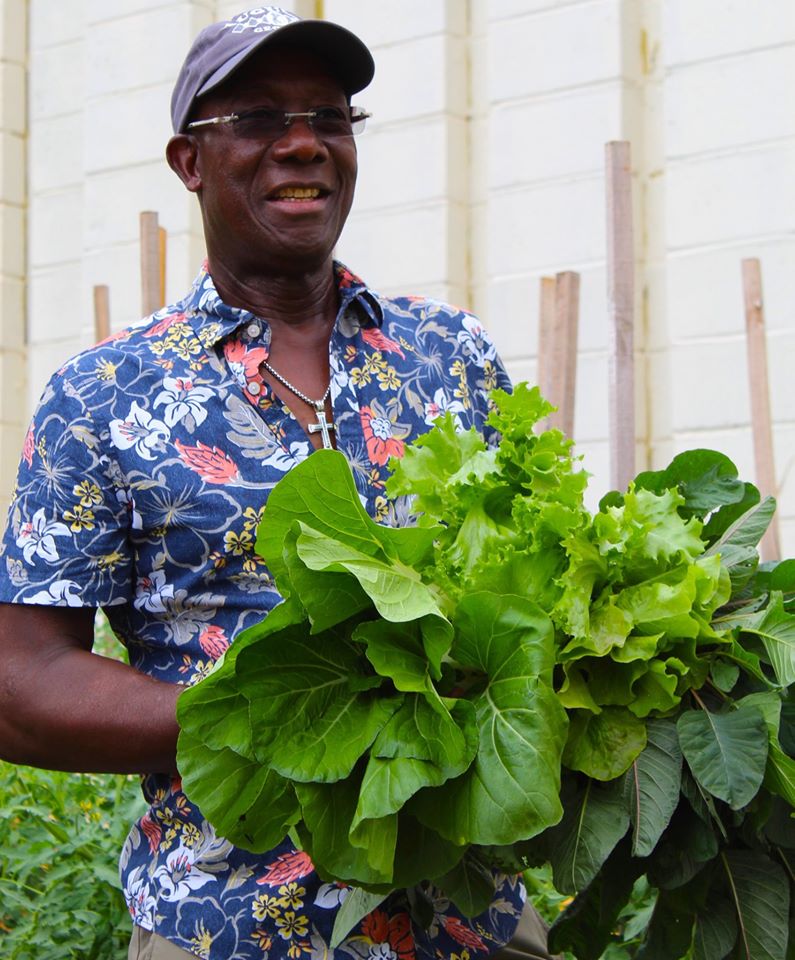
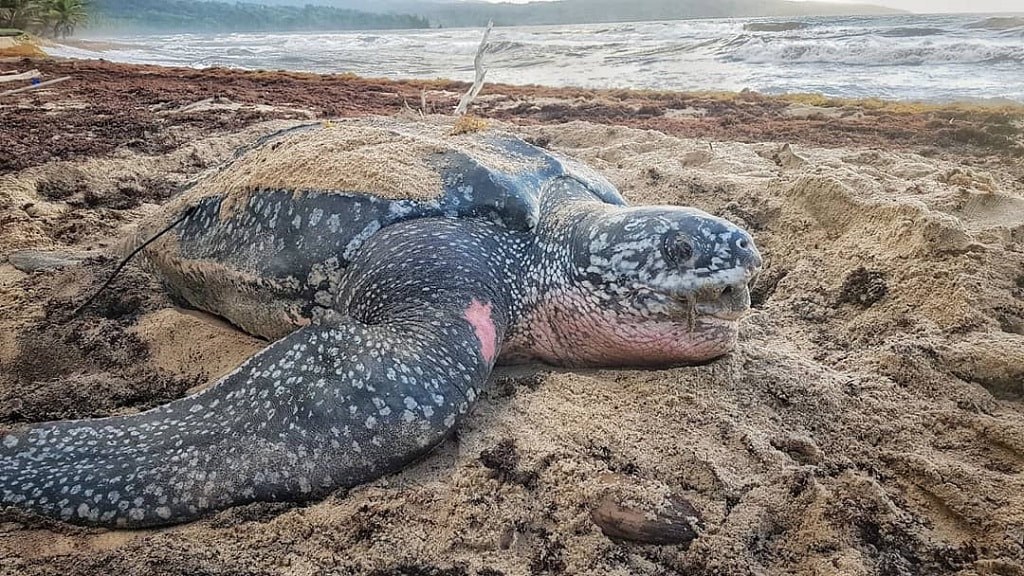
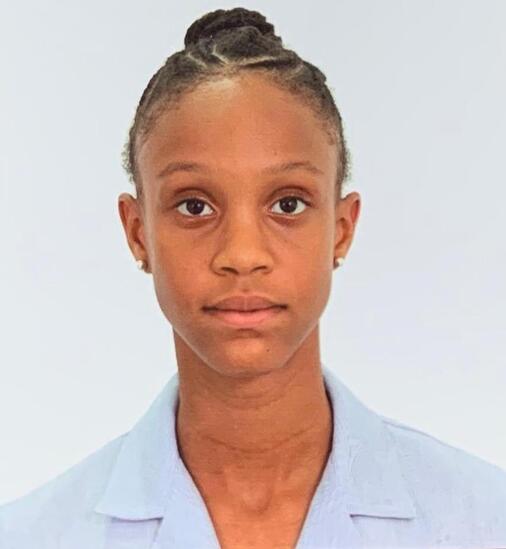
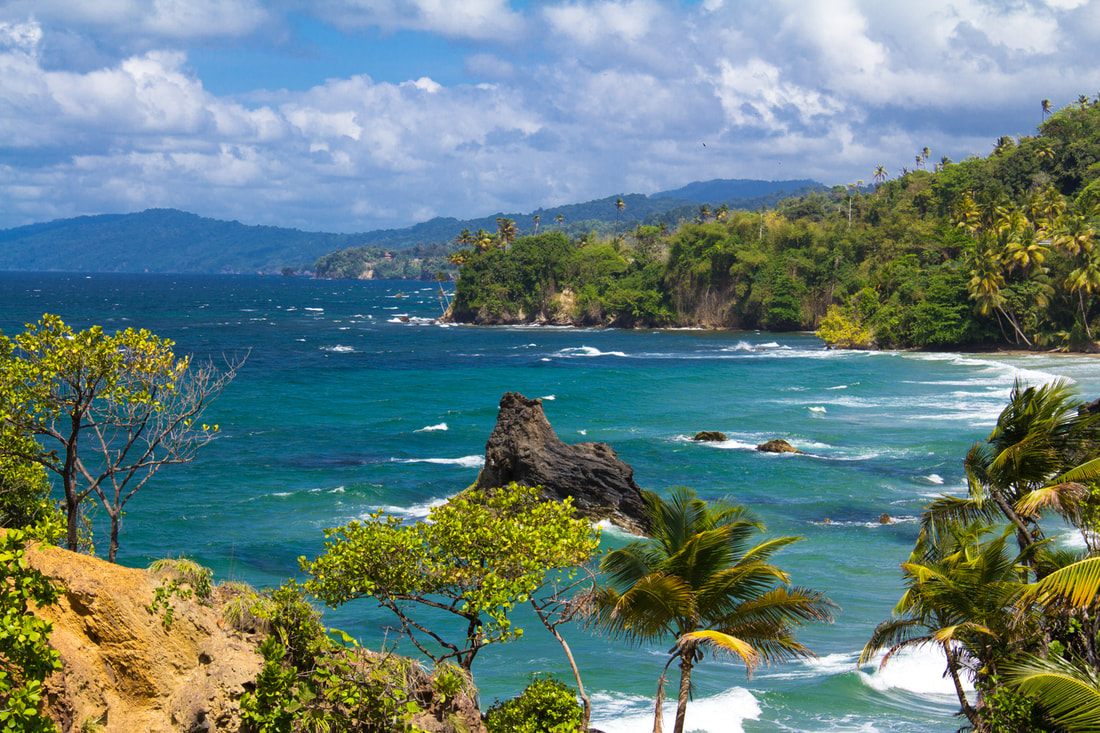
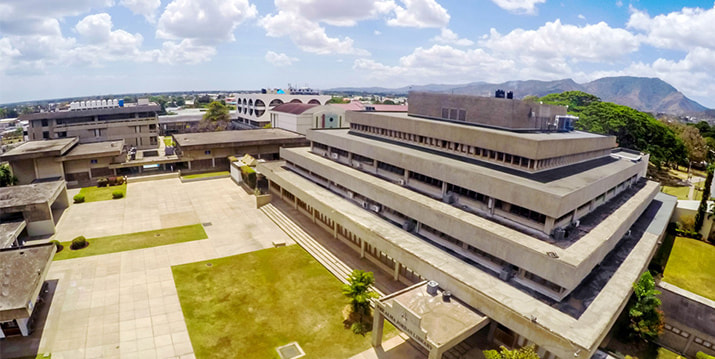

 RSS Feed
RSS Feed